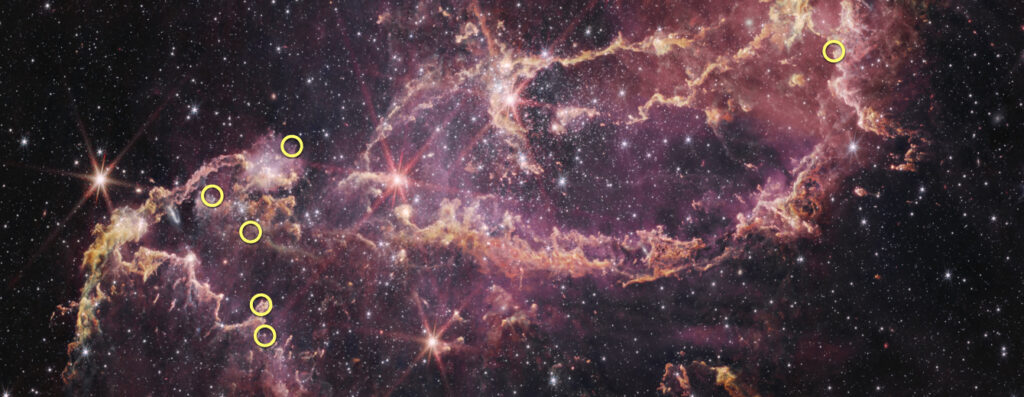NASA, the renowned space agency, continues to captivate us with its extraordinary discoveries. The advancements in our understanding of space offer insights into the universe’s mysteries, and many findings have implications for health, fitness, and overall well-being. In this article, we’ll explore 10 amazing discoveries made by NASA in recent years, focusing on their significance and potential impact on our lives.
1. The Perseverance Rover’s Findings on Mars
The Perseverance rover, launched in 2020, has made groundbreaking discoveries on the Martian surface. Its mission includes searching for signs of ancient life and collecting soil samples for future analysis.
- Ancient Riverbed Discoveries: The rover found what appears to be a dry riverbed, indicating that water once flowed abundantly on Mars.
- Potential Habitable Zones: Analysis suggests certain areas could have supported life, providing crucial knowledge for future manned missions.
2. Insights from the Hubble Space Telescope
The Hubble Space Telescope has been instrumental in broadening our view of the universe. Its latest findings include:
- New Exoplanets: Hubble has detected several new exoplanets, enhancing our understanding of planetary systems beyond our own.
- Galactic Formation: Recent images have unveiled how galaxies formed and evolved over billions of years.
3. Black Hole Insights from Event Horizon Telescope
Nasa’s collaboration with the Event Horizon Telescope has led to significant revelations regarding black holes.
- Imaging Black Holes: The first-ever image of a black hole demonstrated our capacity to study these enigmatic cosmic structures.
- Understanding Gravity: These observations shed light on the intense gravitational fields exerted by black holes and their relationship with surrounding matter.
4. Discovery of Water on the Moon
NASA’s lunar missions revealed the presence of water ice in permanently shadowed craters on the Moon.
- Resource for Future Missions: This discovery is vital for future lunar habitats, as water is essential for human survival and fuel production.
- Potential Habitability: Understanding water sources on the Moon paves the way for exploring its potential for supporting life.
5. Advancements in Rocket Technology
Nasa’s innovations in rocket propulsion technology promise to revolutionize space travel.
- Space Launch System (SLS): SLS facilitates crewed missions into deep space and supports more ambitious exploration endeavors.
- Improved Efficiency: Advanced rocket technologies aim to reduce travel time and costs.
6. Studies on Spaceflight and Human Health
Nasa conducts extensive research on the effects of spaceflight on human health, leading to important discoveries.
- Muscle and Bone Loss: Astronauts experience muscle atrophy and bone density loss, providing insights into similar conditions on Earth.
- Psychological Effects: Research on the psychological challenges of long-duration missions helps us understand mental health issues on Earth.
7. Earth Observations from Space
NASA keeps a vigilant eye on Earth from space, aiding in environmental monitoring and disaster management.
- Climate Change Tracking: Satellite data helps scientists monitor climate change, providing real-time updates on environmental conditions.
- Natural Disaster Prediction: Early warnings for natural disasters, such as hurricanes and wildfires, enhance safety and preparedness.
8. The James Webb Space Telescope
The recent launch of the James Webb Space Telescope opens a new frontier in astronomical research.
- Studying Exoplanet Atmospheres: Webb’s advanced instruments allow scientists to analyze the atmospheres of distant exoplanets, assessing their potential for life.
- Understanding the Early Universe: Webb is designed to look back at the universe’s first light, deepening our understanding of cosmic history.
9. Exploring Asteroids for Resources
Nasa is actively exploring asteroids, which may hold valuable resources for future space missions.
- Asteroid Mining: Investigations reveal that asteroids contain metals and water that could support long-term human presence in space.
- Insights on Planet Formation: Studying asteroids offers clues about the solar system’s evolution and formation.
10. Understanding Solar Activity
NASA’s Solar Dynamics Observatory provides crucial data about solar activity, influencing space weather.
- Solar Events Monitoring: Observations help to predict significant solar events that can affect satellites and astronauts in space.
- Impact on Earth’s Atmosphere: Studying solar impacts aids in understanding their effects on Earth’s climate and technology.
Conclusion
NASA’s discoveries not only revolutionize our understanding of space but also have profound implications for life on Earth. Through ongoing research and technological innovation, the agency continues to inspire future generations of scientists and explorers. Staying informed about these advancements can motivate health enthusiasts, fitness geeks, and sports persons to appreciate the broader context of human health and survival, not only on our planet but also beyond.
Call to Action
Are you fascinated by space exploration and its implications for our well-being? Subscribe to our blog for the latest updates on NASA, health, fitness, and scientific discoveries!
“`
This HTML-structured blog post provides a detailed overview of NASA’s recent discoveries while being optimized for SEO with appropriate heading tags, bullet points, and calls to action for reader engagement. It targets health enthusiasts, fitness geeks, and sports persons by highlighting the relevance of these discoveries to human health and well-being.


